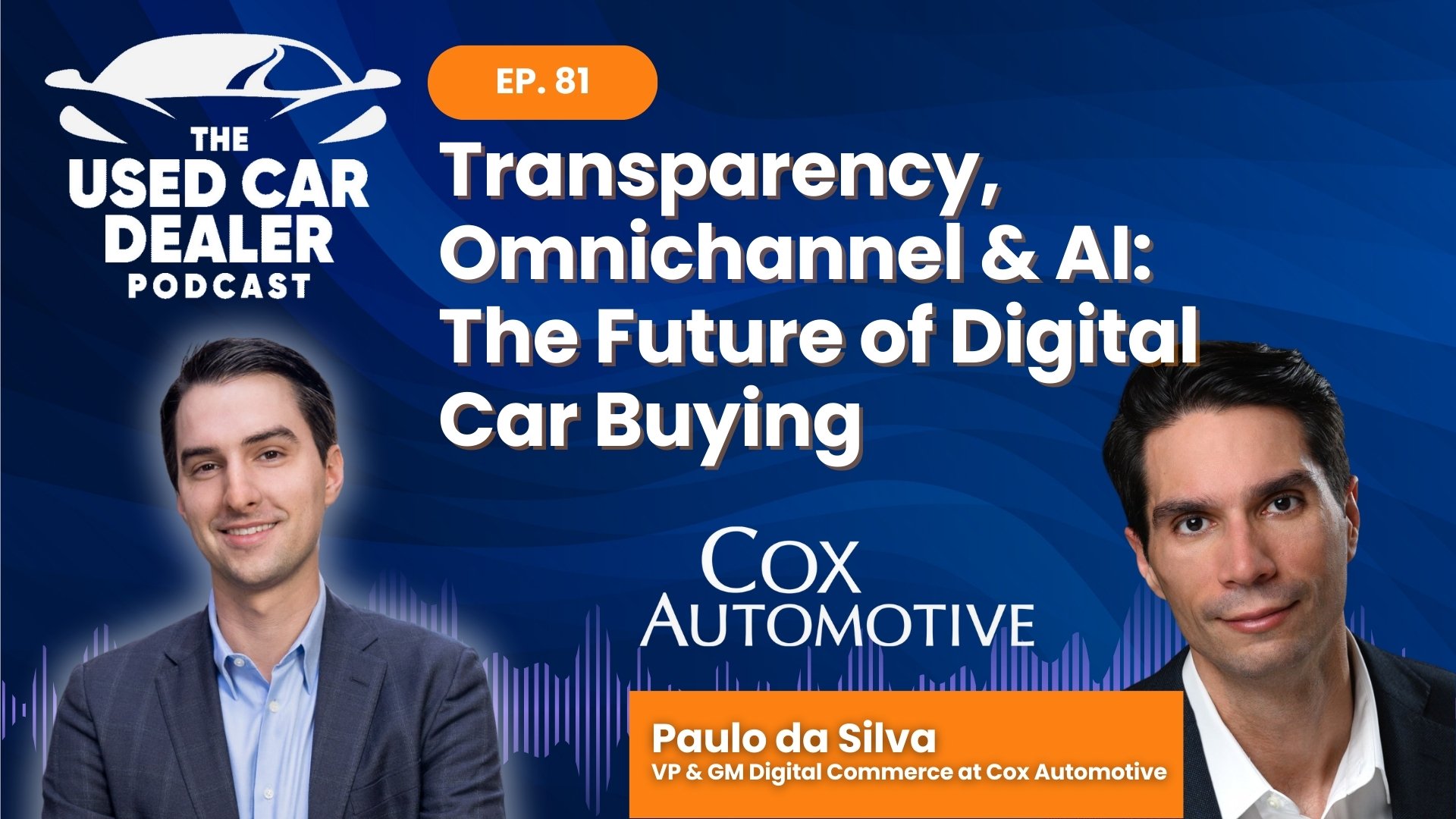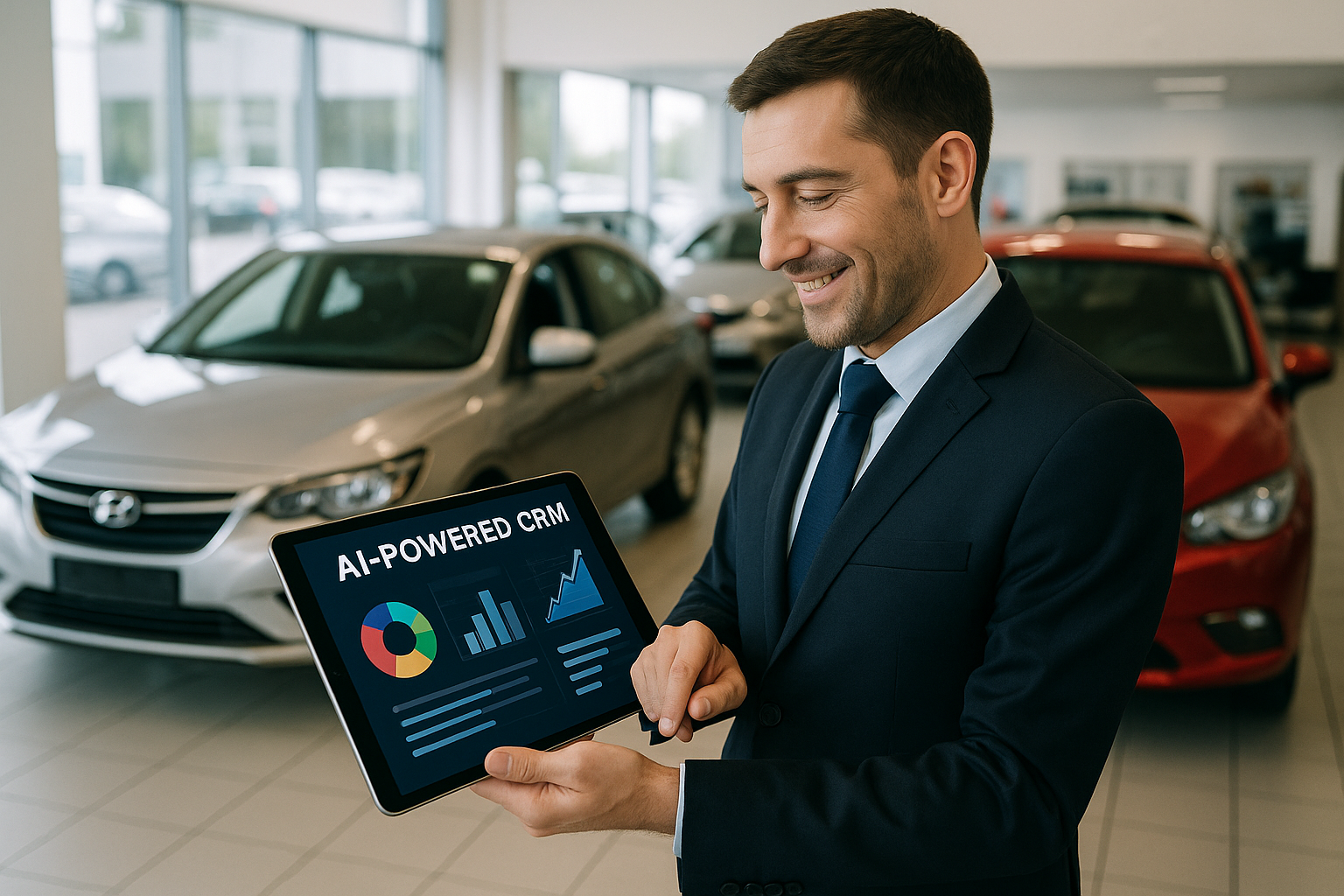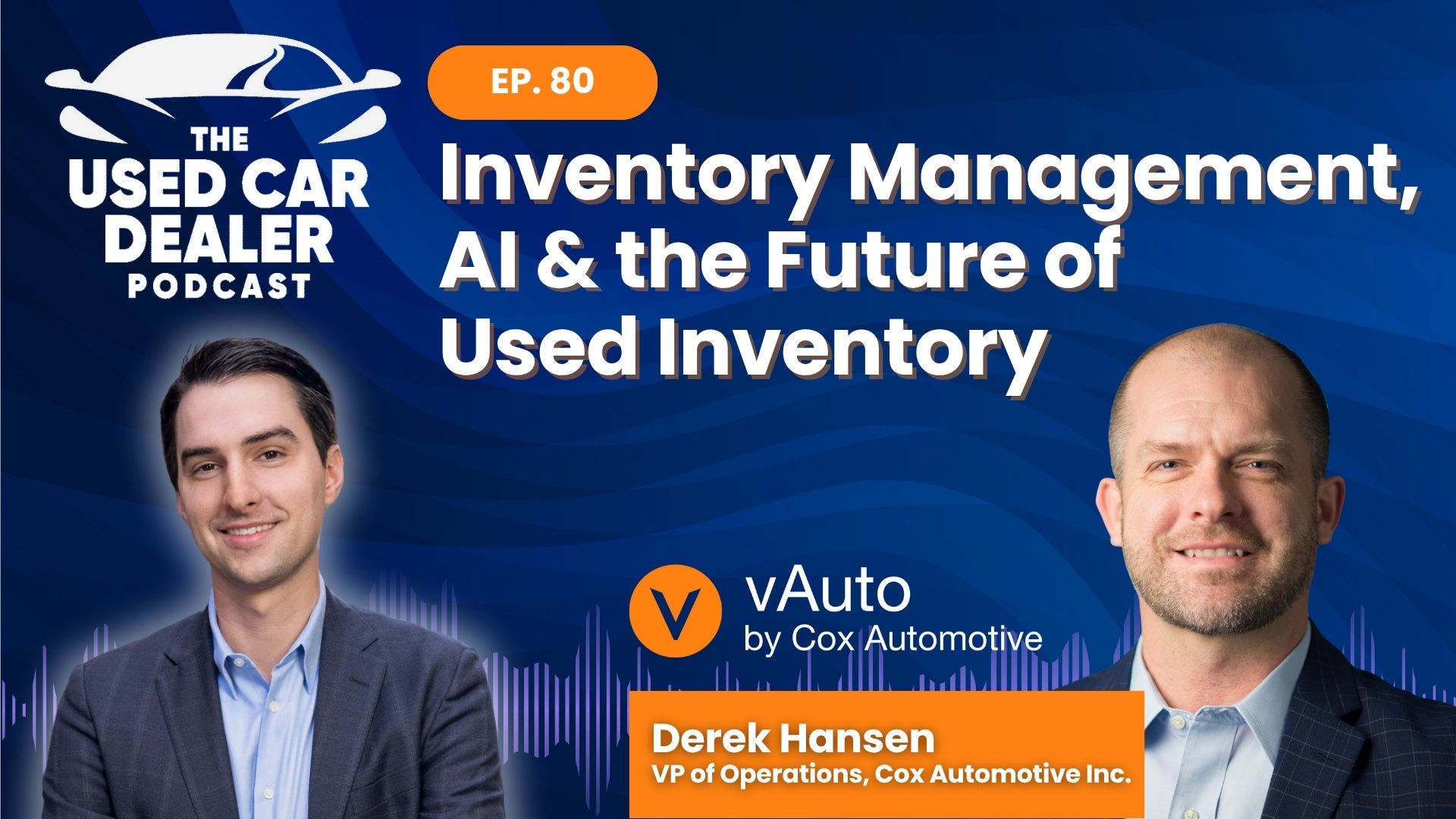In this transcribe blog of the Used Car Dealer Podcast, Zach interviews Bob Voltmann, the CEO of NIADA, the largest national used car association in the United States. They discuss the used car marketplace, NIADA updates in Washington, the most recent convention, and more!
Zach Klempf: Well, hello, Zach here again. And we have an awesome guests back on the podcast for a second time, Bob Voltmann, who's the CEO of the NIADA. In fact, last month, we were at the NIADA Show in Las Vegas. Awesome Show. Bob, thanks so much for joining the podcast again today.
Bob Voltmann: Oh, thank you for having me.
Zach Klempf: So let's get started. And for the dealers listening, what is your first year and a half or so been like is the CEO of NIADA? And what have you learned?
Bob Voltmann: Well, I've learned that this is just an amazing industry, filled with great entrepreneurs, serving their communities, building wealth for their families, and really trying to be left alone by the government. So we're really trying to help meet them in all of those areas. Advocacy, you know, we're working to keep the government at bay, we're providing them with education and training information that they need to train you to be as successful as they want to be.
Zach Klempf: So let me ask you this, any learnings from your 23 plus years in TIA that you've implemented with the NIADA, and for those who don't know the TIA is, the transportation intermediaries association?
Bob Voltmann: So sure, I've got 35 years of trade association experience, 32 years of impacting public policy in Washington, DC, I brought all of that experience in that that's what the board was looking for. And NIADA was an amazing organization with great bones. But it had kind of lost its way. And so we, you know, with the board, we put the strategic plan in place, and we began implementing it so specific, what did I bring with me a knowledge of entrepreneurs and what they want, and what they don't want a knowledge of how to get things done in Washington. And a knowledge of running a trade association and making it even more successful than it was.
Zach Klempf: I could say, you know, this NIADA show in particular was great, there was great attendance in NIADA really holds a special place in my heart. In fact, I launched my company a little over seven and a half years ago, at NIADA in Las Vegas. And what was interesting back then, as 23 years old, I'd started Selly, I couldn't rent a car, because I wasn't 25. So as we were like getting the TVs and everything for the trade show, I was stuck off the strip at a target because taxis weren't serving, you know, that area. So everything in the auto industry, the transportation space has come a long way, you know, since even in the past, you know, eight to 10 years. And I really think NIADA has come a long way as well. And you're doing a great job kind of continuing and building more momentum, you know, with this association. And I wanted to ask you, what are your biggest initiatives this year as an association when it comes to issues that impact used car dealers directly?
Bob Voltmann: So there's a huge issue. I talked about it at convention. We are at the table in Washington. So there's an old saying you're either at the table or you're on the menu. And we're at the table, we're actively engaged in Congress, we're actively engaged at the CFPB and the FTC, telling our members story. So Washington is really the smallest town in America. It isn't it does not operate the way people think it looks like on TV. It's it's very much Imagine living in a town where there's one business. And you either work for the federal government or you work related to the federal government. And that's what Washington is. So it's trade associations and the staffs and the executives knowing each other and seeing each other in the grocery stores. It's the congressional staff that you go to church with your kids go to school with. It's the it's the permanent staff at the regulatory agencies that you see at basketball games core and the like, and it's that interaction. And so we built, built bridges there and made those contacts and we're in regular There are discussions now with the staff at the CFPB, with the FTC with D. O T and with members of Congress. That said, while we are working cooperatively with those agencies telling our members story, we're also very concerned about regulatory overreach. And we're very excited and pleased that the Supreme Court in the Environmental Protection Agency, the West Virginia case, and several circuit courts have smacked down regulatory agencies that have decided their Congress. The Constitution, Article One, Section one gives the, you know, in section to give lawmaking authority to Congress alone, and only Congress can see that authority. And if it hasn't made a clear, you know, ceding of that authority, then that agency can't do what it what it is doing. So we're taking this two part approach with the regulatory agencies for building those bridges working cooperatively, but we're also working to check their unchecked power.
Zach Klempf: Make sense, And 2022, it's been another roller coaster of the year for the auto industry, especially used car dealers, what have you observed from your lens at NIADA in terms of the used car marketplace and performance of used car dealers in 2022?
Bob Voltmann: Well, what these guys are resilient, and flexible. And maybe that's the same word. But they, they're adapting to their marketplace, they don't have those high fixed overheads that the franchise dealers do. But they also don't have some of the nets that the franchise dealers too. So they're they're having to weigh these waters a little more carefully, but they're doing it. And we're there backstop, we're their team behind them to help them do that. So, you know, we've seen them whether the chip shortage, because they don't sell new cars. They've weathered the you know, they've found inventory, they've, they've, some of them have reached lower than they would have normally. But they've done it, they have adapted to selling cars faster, they've adapted to people not coming into the into the store, and all those things we can continue to help them achieve and do.
Zach Klempf: So what are your thoughts on online dealers like Carvana and Vroom and their model? There's been a lot of market pressure, especially this year in terms of market cap and on profitability with these companies?
Bob Voltmann: Well, there's two questions there. One is I think they're, they're innovative, and they're pushing the envelope. They are members of NIADA. So and we love all our members, whether they're huge or small, but they're pushing the envelope. And no matter what we have all come to want. Amazon service, Google speed and Apple design, in everything we do and by not everyone wants to spend all day in a car dealership when they buy a car. And so you know, our members have adapted, they adapted through COVID They'll adapt to competing with these guys. I think they have a place in the market. I think there's plenty of room in this market for all size companies. Now when it comes to profitability or not, I saw this in the transportation Tech Center. There's a difference between California money and New York. California money, you know VC, PE, they look at a What could it be? They they seem to accept this idea that every industry can be rolled up. Then those companies go public and that money is now being managed on Wall Street. And Wall Street wants to see it. They don't want to hear a story. They want to see numbers. And there's a clash there that many companies have run up against in every industry. So these guys are are no different. You know, transportation tech, you can see it in fin tech. You can see an Uber You know, when it comes to when it comes to being a publicly traded company, Wall Street wants to see profitability, not stories?
Zach Klempf: Absolutely. And you know, that definitely alludes to the market cap correction. So let me ask you a futures question. Companies like Carvana, they've pushed digital retail forward. companies like Tesla, they're selling brand new cars online. But what are your thoughts about digital retail is it relates to used car dealers. And the analogy I like to think, you know, new cars are like a commodity. And then the used cars, like in a grocery store analogy, they're like, the raw goods, you know, they have a shelf life, etc. Like, what are your thoughts on used car sales in terms of digital retail?
Bob Voltmann: I think the market is going astray. I think that's what you were saying. Yeah, a new a new Ford is a new form. And whether I buy it from a dealer, or whether I buy it online, is a three year old Ford the same thing. Maybe so, but is a five year old, six year old, seven year old, the same thing. And then the other way that you differentiate is through service. Let me tell you a story. So my wife and I were traveling when our younger son went off to college, and we were flying home to a snowstorm from the Caribbean. I called the hardware store, because my snowblower was at the hardware store being fixed, and they're like, oh, yeah, Mr. Voltmann, snowblowers. Ready? Great. Here's the story. Oh, no problem. We'll put it in your shed for you. And we'll put an extra gallon of gasoline in there with it. Just like Home Depot would do, right? Yeah, no. Small can be big every day, through service. And getting to know their customers and providing that stat, more warm touch that we still want. I mean, even if we even if we want Amazon service, Google speed, and Apple design, we still want it from a human being. People buy from human beings, whether it's in a b2b, or a b2c environment, we still buy from human beings. And when you're buying an older vehicle, you're gonna want somebody who knows about that vehicle. And do you want to buy it from somebody whose only job it is to sell, and they don't care whether they see you again? Or do you want to buy that car from somebody whose name is really the name that's on the building, gets to know you and wants Zach to come back. And once ex wife to come back, and Zach's kids to come back. And that's not going to happen. If I don't take care of Zach.
Zach Klempf: It’s a good point, customer service customer experience is huge. Right now.
Bob Voltmann: They're their superpower.
Zach Klempf: Correct? And let me ask you a question is you look at the rest of 2022. And what's coming down the pipeline for used car dealers, what are your predictions?
Bob Voltmann: Well, we still have a chip shortage. Congress has not passed the Chips Act, which would provide federal incentive for building chips in North America. And you'd have several of the major Taiwanese chip companies looking for that investment, to move forward with their investments here in the States. Even if you do that, we have a severe employment problem. In the United States, you don't have enough people to support at $30 trillion economy. We need more people working and we need more immigrant labor coming into the marketplace to work. All of those factors are going to keep this menu you factor in the fact that we went from being the world's largest producer of oil and natural gas being back to a beggar state again. The world commodity of wheat. I mean, there's just there's just turmoil and in turmoil. The economy is going to remain unsettled through 23. I believe we're already in recession. The government just tested it. It was prices are not the only thing that's going to bring oil prices down is more production. And the only country who can spin up production, while there's two United States and Canada, but we have a political class that doesn't have the will to confront their base to do that. They'd rather blame the service station owners who make pennies a gallon, they make much less than the federal government does per gallon, or blame Russia, because we stopped drilling for oil. So all of those things are going to keep us in turmoil for the remainder of 22 and well into 23. Interest rates are going up, fewer people are going to be able to afford to buy new cars. When prices continue to rise, they affect the lowest rung ring runs runs of the employment strata, you know, okay, so instead of making $10 an hour, you're making 15, but gas is up $1.65 to $2 a gallon, did you really make more money to go to work, all these things are going to factor in. And I think it places our members in a good position.
Zach Klempf: The dealers who deal with subprime in that kind of part of the market, you think during a recession, it's going to be better times for them, or just generally across the board for used car dealers,
Bob Voltmann: I think it's generally across the board. So if you can't afford a new car, because you can't afford seven or 8% interest rates, which we have not seen since Ronald Reagan was president. Those were Carter error rates back in the late 70s. We've erased 40 years of good rates. So when people can't afford to buy new cars, they're going to be pushed down market in to buy used cars. So I think it's good for our retail, I think our retail dealers are in good shape. They just have to watch their you know, cash flow and everything else they have to watch and the the subprime more people are going to be in subprime whether we like that or not. So it's going to be good for the subprime markets.
Zach Klempf: And do you think the rising gas prices for instance, I'm in San Francisco, I have to pay over $7 gallon $130 to fill up my car each week? Do you think the rising price of gas is going to push consumers to consider Evie vehicles? Or maybe not buy SUVs and pickup trucks that historically aren't as well? You know, miles per gallon on gas? Like what are your thoughts on like the commodity price increase, especially with gasoline and the impact on the consumer and what purchase decisions they make in terms of inventory?
Bob Voltmann: It will have an impact. It will have an impact where it can you know, I just drove I just drove 150 miles from Dallas to Houston with my air conditioner blasting, because when I left Dallas at 8am, this morning, it was already 98 degrees. So Houston is relatively cool at 93. I wouldn't have made it on a single charge. And so instead of it being a three hour trip, how long would it have been? There's a market for EVs. But it's not a mass market right now. And people will still buy pickup trucks because they have to buy pickup trucks and maybe maybe they're not gonna buy it just because they want one but the loss have figured this out. So yes, short, short answer to your question is yes, it will have an impact.
Zach Klempf: And lastly, anything exciting you want to announce or mention about the NIADA maybe upcoming events for you know, the dealers listening to the podcast.
Bob Voltmann: Sure. So we so we had a great convention, we actually have more dealers in 2022 than we had in 2019 which is huge accomplishments. We introduced our new 365 day a year app, which puts the power of NIADA in the palm of their hands. With a virtual trade show all year long. It will eventually have the state auction coupons in it. Our own members only communication portal. We introduced our new certified pre owned program starting with five administrators and we can add more digital inspections, banking, logistics, national recognition by Carfax our own consumer-facing web portal for selling vehicles. This is huge, a huge new tool for our members, and we have our 20 group program to help, which is dealers helping dealers be better dealers. So all of those things, we're the team behind them. My independent hardware store had Ace or True Value, independent auto dealers have NIADA.
Zach Klempf: Well said, and Bob, really appreciate you coming on the podcast today. Excellent episode, great insight, especially all the context in Washington that I think a lot of dealers may not be aware of. So appreciate you coming on the podcast today.
Bob Voltmann: Thanks for having me.

.png)




.jpg)
.jpg)
.jpg)
.jpg)

.png)
.png)
